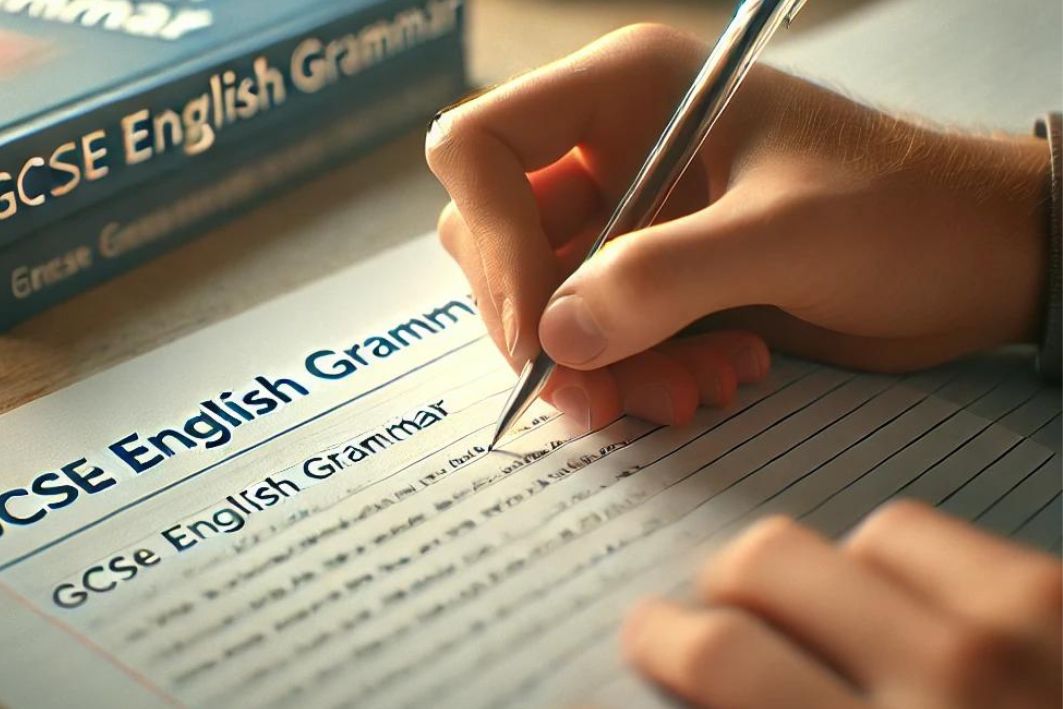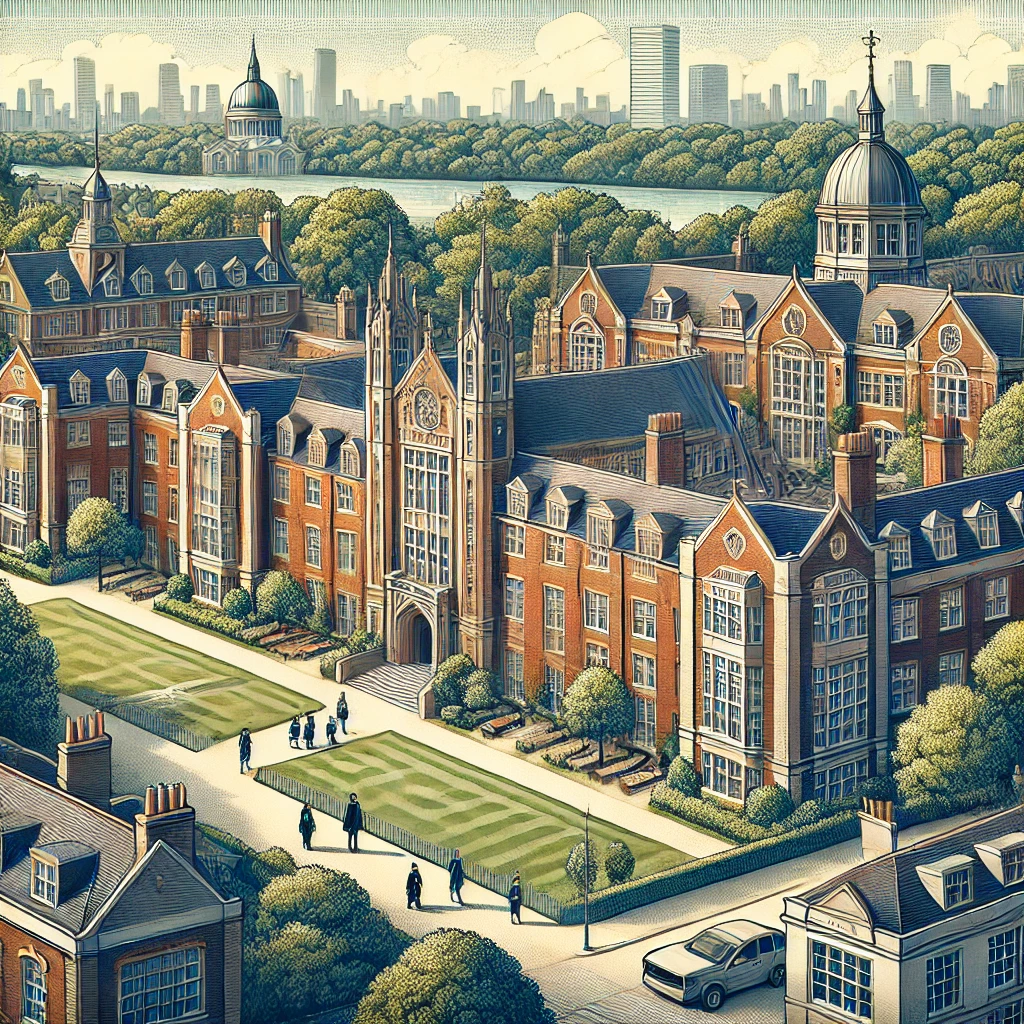1. Wilson’s School, Wallington
- GCSE: 95% grades 9-7
- A-Level: 81.3% grades A*/A
- A top-performing boys’ grammar school known for its excellent GCSE and A-Level results, Wilson’s School consistently ranks at the top in London.
2. Queen Elizabeth’s School, Barnet
- GCSE: 93.3% grades 9-7
- A-Level: 89.1% grades A*/A
- A prestigious boys’ grammar school, often at the top of the league tables. It is known for its rigorous academic standards and exceptional student achievements.
3. The Henrietta Barnett School, London
- GCSE: 97% grades 9-7
- A-Level: 75% grades A*/A
- This all-girls’ grammar school in North London is renowned for its outstanding academic results and a strong emphasis on personal development.
4. St Olave’s Grammar School, Orpington
- GCSE: 91% grades 9-7
- A-Level: 76% grades A*/A
- A boys’ grammar school with a history of high academic achievement. It offers a well-rounded education with a focus on both academics and extracurricular activities.
5. The Tiffin Girls’ School, Kingston
- GCSE: 90.7% grades 9-7
- A-Level: 72.0% grades A*/A
- One of the top-performing girls’ schools in London, Tiffin Girls’ School offers a balanced education with a focus on both academic excellence and personal growth.
6. Tiffin School, Kingston
- GCSE: 86.0% grades 9-7
- A-Level: 70.0% grades A*/A
- A high-achieving boys’ grammar school known for its excellent GCSE and A-Level results and a broad range of extracurricular offerings.
7. The Latymer School, London
- GCSE: 93% grades 9-7
- A-Level: 75% grades A*/A
- A co-educational grammar school that is highly regarded for its strong academic performance and supportive learning environment.
8. St Michael’s Catholic Grammar School, Finchley
- GCSE: 83.3% grades 9-7
- A-Level: 60.0% grades A*/A
- This school has a strong reputation for academic success and is often listed among the best in London due to its supportive ethos and high standards
What is State School?
A state school, also known as a government-funded school, receives funding from the government through local authorities in the UK. These schools offer free education to children aged 4 to 18 without charging tuition, relying on taxpayer money for support. Hence, They follow the National Curriculum, which defines the subjects and standards that guide teaching across key stages.
Key Characteristics of State Schools
State schools are financed by local councils and receive additional funding from the Department for Education (DfE). This financial support enables them to provide essential resources such as teaching staff, learning materials, and extracurricular activities. The governance of state schools is usually managed by a board of governors, which includes representatives from the community, parents, and local authorities.
Admissions and Accessibility
State schools are required to follow specific admission guidelines, which are designed to ensure fair access for all students. Furthermore, Most state schools prioritise admissions based on factors like proximity to the school, sibling attendance, and other criteria set by local authorities. Unlike private schools, they do not conduct entrance exams (except for grammar schools) and are open to students from diverse backgrounds.
Educational Standards
State schools in the UK are regularly inspected by Ofsted (Office for Standards in Education, Children’s Services, and Skills) to ensure they meet educational standards. Ofsted inspections result in a rating that indicates the quality of education provided by the school, ranging from ‘Outstanding’ to ‘Inadequate.’ These ratings help parents and guardians make informed decisions when choosing a school for their children.
Curriculum
The curriculum in state schools is designed to provide a broad and balanced education. It includes core subjects such as English, Mathematics, and Science, as well as humanities, arts, and physical education. Hence, Schools must adhere to the National Curriculum, which sets out learning objectives and assessment standards for each key stage of education.
Community Involvement and Support
State schools often act as hubs for their communities, offering a range of support services for both students and parents. For instance, they provide counselling, special educational needs (SEN) support, and after-school activities, fostering academic and personal growth. Additionally, community involvement plays a key role by creating a nurturing environment that promotes student well-being and development.
1. Wilson’s School
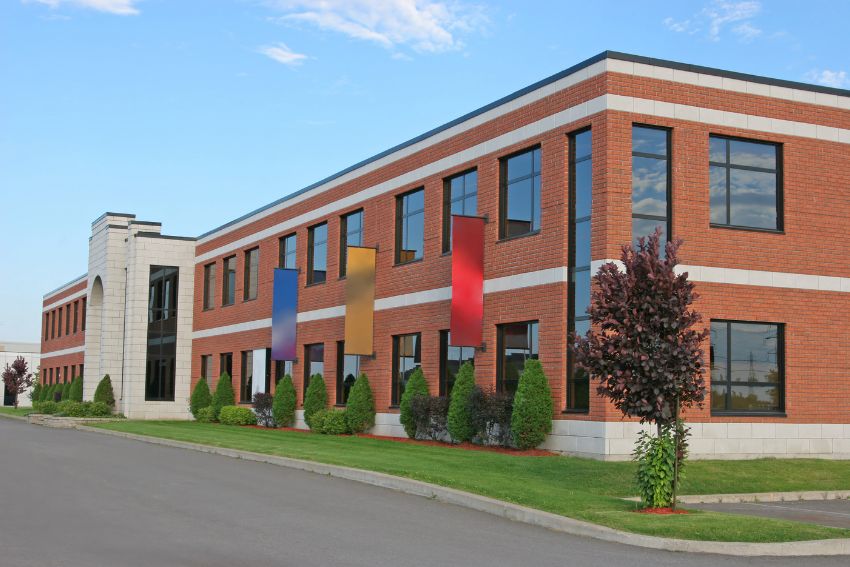
Location and General Information
Wilson’s School is a highly selective boys’ grammar school located in the London Borough of Sutton. It has earned a strong reputation for its academic excellence and was named The Sunday Times Secondary School of the Year in 2024. The school operates under the motto “Non Sibi Sed Omnibus” — “Not for oneself but for all,” reflecting its commitment to fostering a sense of community and responsibility among students.
Academic Performance
Wilson’s School consistently achieves outstanding academic results. For 2024, its GCSE results showed 94.4% of grades at 7 (A) or above, with 60.8% at grade 9, the highest possible. At A-level, 77.5% of entries achieved A*-A grades, and 21 students secured places at Oxbridge universities. The school boasts a 100% pass rate for both GCSE and A-level examinations.
Special Achievements
The school has been recognised not only for its academic success but also for its strong co-curricular programme. Wilson’s has a flourishing music department, with one of the best school choirs in the region. The drama department is also well-regarded, putting on several productions each year(.
Student Support and Well-being
Wilson’s School places great emphasis on student well-being and development. In addition, its pastoral care system actively supports students’ mental health and personal growth. Moreover, the school encourages participation in a wide range of extracurricular activities, including sports, music, and academic clubs. Hence, by promoting these opportunities, Wilson’s ensures students enjoy a well-rounded and holistic educational experience.
2. Queen Elizabeth’s School, Barnet
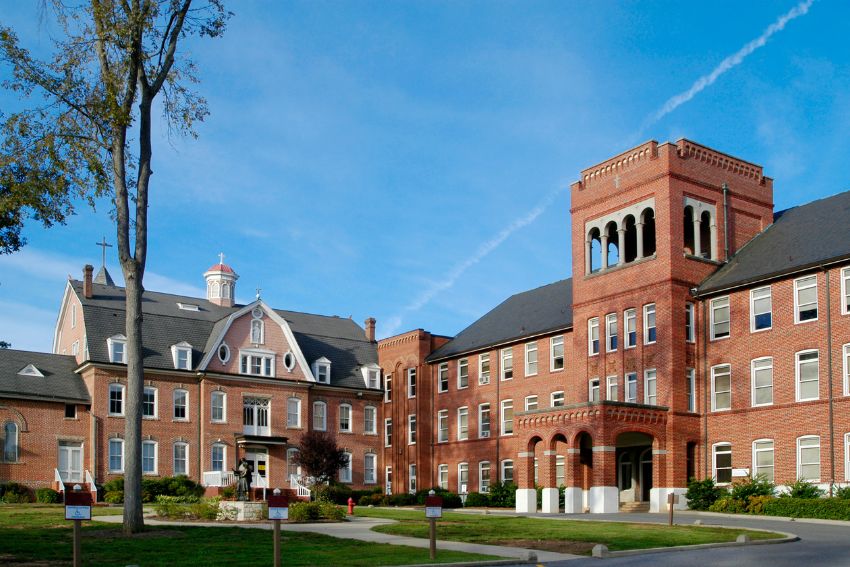
Location and General Information
Queen Elizabeth’s School, commonly known as QE Boys, is a selective grammar school for boys located in Barnet, North London. Founded in 1573, it boasts a rich history and tradition of academic excellence. Moreover, the school serves students aged 11 to 18 and consistently ranks among the top-performing state schools in the UK. In addition to its rigorous academic programme, QE Boys is well-known for providing strong pastoral care and offering extensive extracurricular opportunities, ensuring a well-rounded education.
Academic Performance
In 2024, Queen Elizabeth’s School achieved remarkable results. Specifically, at GCSE, 93.3% of all grades were 7 (A) or above, solidifying its status as one of the highest-performing state schools in London. Additionally, at A-Level, 81% of entries earned A*-A grades. As a result, a significant number of students gained admission to prestigious universities, including Oxbridge and Russell Group institutions, further demonstrating the school’s academic excellence.
Facilities and Extracurricular Activities
The school boasts modern facilities, including state-of-the-art science laboratories, a library, and a dedicated arts and humanities centre. Students are encouraged to participate in a wide range of extracurricular activities, such as debating, music, sports, and drama. The school’s house system fosters a sense of community and friendly competition, with regular inter-house events.
Pastoral Support and Community
Queen Elizabeth’s School places a strong emphasis on student welfare and personal development. Moreover, the school offers a comprehensive support system, including peer mentoring, career advice, and personal development sessions. Additionally, students engage in various service and leadership roles, which helps them build both confidence and responsibility.
3. The Tiffin Girls’ School
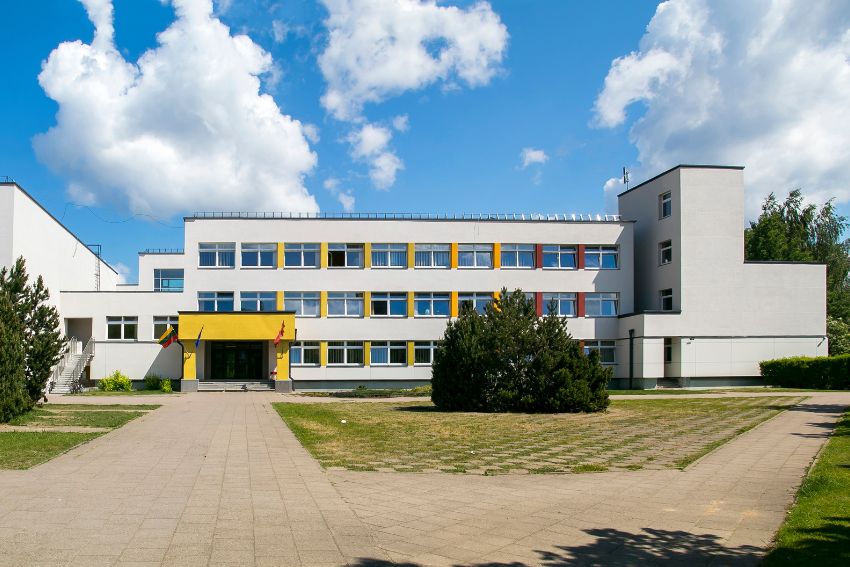
Location and General Information
The Tiffin Girls’ School is a selective grammar school for girls aged 11-18, situated in Kingston upon Thames. With a strong reputation for academic excellence and a vibrant culture, the school operates under the motto “Sapere aude”—meaning “Dare to be wise.” The school provides an inclusive and empowering environment, where students engage actively in learning and develop both academically and personally.
Academic Performance
In 2024, Tiffin Girls’ students achieved exceptional results. Specifically, 96.3% of their GCSE grades were 7-9 (A/A equivalent), clearly reflecting outstanding academic success. Furthermore, at A-Level, 71.6% of all grades were A or A, further demonstrating the school’s consistent high standards in preparing students for higher education and competitive university entry.
Curriculum and Extracurricular Activities
Tiffin Girls’ offers a broad and balanced curriculum while also placing a strong focus on arts and sports. Moreover, music, drama, and sports play a crucial role in school life, with students actively engaging in various clubs, performances, and competitions. Additionally, the school nurtures creativity and leadership through initiatives such as the Duke of Edinburgh programme and Young Enterprise activities, providing students with opportunities to develop essential life skills.
Pastoral Support and School Environment
The school promotes student well-being through its house system, mental health support services, and personal development programmes. It emphasises inclusivity and ensures students receive the necessary resources to thrive both academically and socially. Hence, This combination of academic rigour and personal support makes Tiffin Girls’ a highly sought-after institution among London’s grammar schools.
4. St Olave’s Grammar School
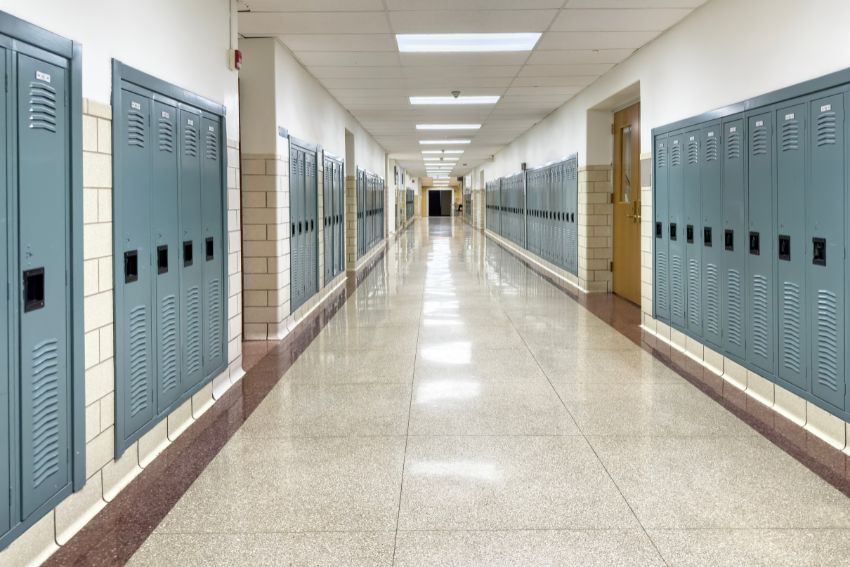
Location and General Information
St Olave’s Grammar School, located in Orpington, Greater London, stands as a prestigious boys’ grammar school. Founded in 1571 by royal charter, the school seamlessly blends tradition with modern education. Moreover, it offers a selective academic environment for students aged 11-18, consistently maintaining high standards across various disciplines.
Academic Performance
In 2024, St Olave’s students demonstrated exceptional academic success. Specifically, 96% of students achieved grades between 7 and 9 at GCSE, highlighting the school’s focus on rigorous academic preparation. Furthermore, 81% of all A-Level grades were A* or A, which reinforces the school’s position as one of the top performers in the UK. As a result, many students go on to attend prestigious universities, including Oxbridge and Russell Group institutions.
Extracurricular Activities and Environment
St Olave’s offers an array of extracurricular opportunities, such as sports, drama, music, and the Duke of Edinburgh Award programme. Additionally, the school fosters a sense of belonging through its house system while supporting students’ personal development with various clubs and societies.
Pastoral Support
The school places great importance on the well-being of students. A robust pastoral care system, which includes mentoring and counselling services, ensures students are supported both emotionally and academically throughout their school journey.
5. Colchester Royal Grammar School

Location and General Information
Colchester Royal Grammar School (CRGS) is a prestigious boys’ grammar school located in Colchester, Essex, with a mixed-gender sixth form. Founded in 1206, it is among the oldest schools in the UK and has earned recognition for its academic excellence. CRGS also offers boarding options, providing a transitional experience for sixth-form students preparing for university life.
Academic Performance
CRGS consistently ranks among the top-performing state schools in the UK. It has a history of excelling at both GCSE and A-Level, with numerous students progressing to top universities, including Oxbridge. Its students’ strong academic results reflect the school’s commitment to high standards and rigorous education.
Extracurricular Activities and Environment
The school fosters well-rounded development through a variety of extracurricular programmes. It offers a broad range of clubs, sports activities, and cultural events, such as music and drama productions. CRGS also participates in the Duke of Edinburgh Award, encouraging leadership and personal growth among students.
Admissions and Selective Entry
CRGS is part of the Consortium of Selective Schools in Essex (CSSE), meaning prospective students must pass the 11-plus exam to gain entry. Furthermore, the school’s admissions process is competitive, and students from across Essex apply each year for a place at this renowned institution.
6. Pate’s Grammar School
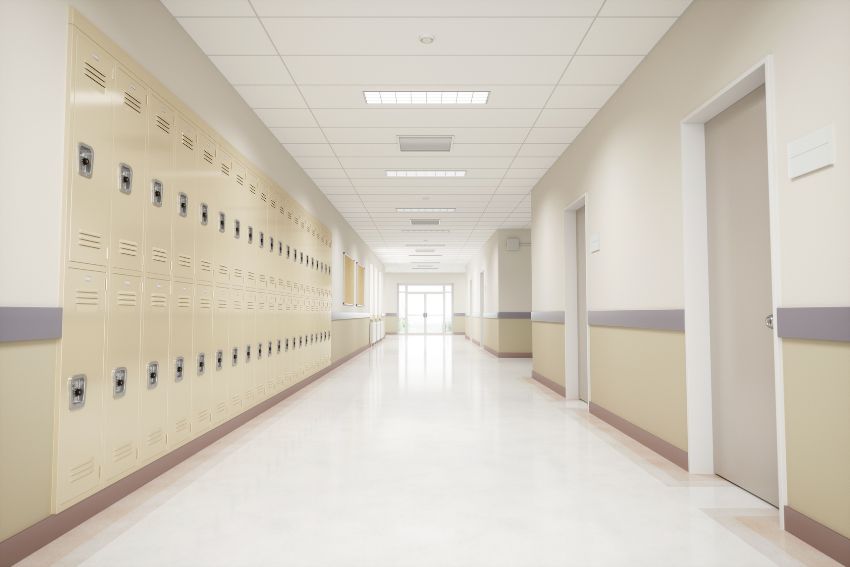
Location and General Information
Pate’s Grammar School, a highly respected co-educational grammar school in Cheltenham, Gloucestershire, combines a long-standing tradition of excellence with modern education. Founded in 1574, it has continually upheld high academic standards, providing education for students aged 11-18. Furthermore, the school’s commitment to outstanding teaching is evident through its “Outstanding” Ofsted rating. As a result, Pate’s attracts students from diverse backgrounds and maintains a reputation as one of the top schools in the region.
Academic Performance
Pate’s students consistently achieve top-tier results at GCSE and A-Level. Consequently, it ranks among the best secondary schools in the South West for academic performance, with many graduates securing places at prestigious universities.
Extracurricular Activities and School Life
The school encourages holistic development through a wide range of extracurricular activities, including music, drama, sports, and leadership programmes such as the Duke of Edinburgh Award. The house system fosters a sense of community and friendly competition among students.
7. Reading School

Location and General Information
Reading School is a highly regarded boys’ grammar school with academy status, located in Reading, Berkshire. Founded in 1125, it is among the oldest schools in England. The school offers both day and boarding options for students aged 11-18, blending a tradition of academic excellence with modern education. It emphasises character development alongside academic achievements, promoting leadership, service, and integrity.
Academic Performance
Reading School consistently delivers top-tier academic results. In recent years, over 85% of GCSE grades have been between 7-9 (A*/A equivalent), and more than 90% of A-Level entries achieved A*-B grades. Many students progress to prestigious universities, including Oxbridge and Russell Group institutions.
Facilities and Extracurricular Life
The school’s campus includes historic buildings as well as modern science facilities. Extracurricular activities play a central role, with offerings in sports, music, drama, and the Duke of Edinburgh Award. The school also supports personal growth through leadership roles and community engagement activities.
Admissions and Boarding
Admission to Reading School is highly competitive, as students must pass the 11+ entrance exam. Moreover, the school offers boarding facilities mainly for sixth-form students, promoting independence and easing the transition to university life.
8. St Michael’s Catholic Grammar School
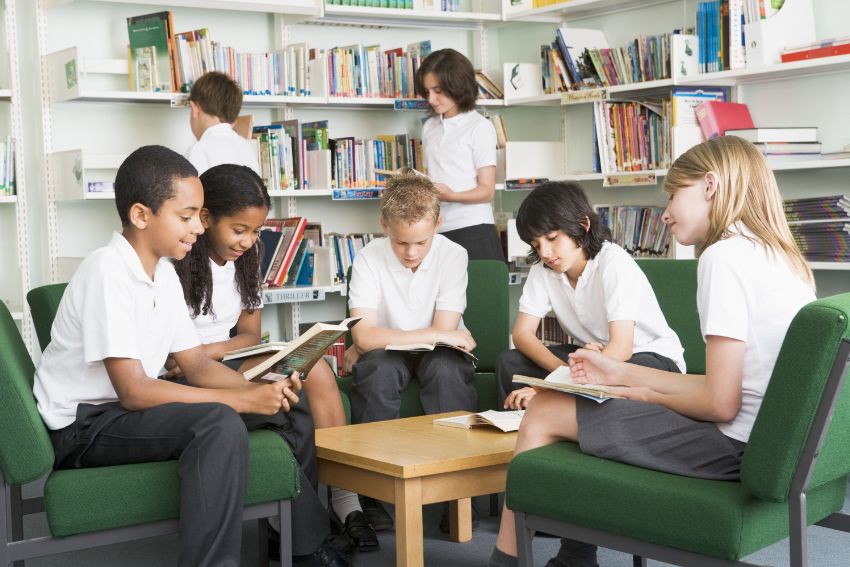
Location and General Information
St Michael’s Catholic Grammar School is a selective, voluntary-aided girls’ school located in Finchley, North London. Founded in 1908 by the Sisters of the Poor Child Jesus, the school places a strong emphasis on both academic excellence and faith-based education. It provides education for students aged 11-18, with an inclusive sixth form that admits students from various faiths.
Academic Performance
The school achieves excellent academic results. For example, in 2024, 99% of students earned grade 5 or higher in their GCSEs, and the school ranks highly for Russell Group university admissions. Moreover, at A-Level, over 52% of grades were A*-A, showcasing the school’s strong academic standards and supportive learning environment.
Extracurricular Activities and School Life
St Michael’s offers a wide range of extracurricular activities, including sports, music, drama, and various academic clubs. Furthermore, the school fosters personal development through programmes like the Duke of Edinburgh Award and encourages active participation in community projects. Additionally, students benefit from a close-knit environment with strong pastoral care, ensuring that well-being and development extend beyond academics. This combination of activities and support helps students thrive both in and out of the classroom.
Admissions and Ethos
Admission to Year 7 requires academic aptitude and a demonstrated commitment to the Catholic faith. The school collaborates with local Catholic boys’ schools to enrich sixth-form experiences. St Michael’s has also earned recognition as a specialist language college, highlighting its dedication to broadening student opportunities.
Useful Tips for Parents and Students
Navigating the journey through grammar or selective state schools can be both exciting and challenging. Here are some practical tips to help parents and students make the most of their school experience:
1. Preparing for Entrance Exams
- Practice regularly: Use mock exams and past papers to build familiarity with exam formats like the 11+ or entrance assessments.
- Create a study schedule: Set aside time for key subjects, including verbal reasoning, non-verbal reasoning, English, and maths.
- Encourage reading: Reading widely helps build vocabulary and comprehension skills, essential for entrance tests.
2. Time Management and Organisation for Students
- Use planners: Keep track of assignments, deadlines, and extra-curricular activities.
- Break tasks into small steps: Tackling assignments in manageable chunks makes it easier to avoid last-minute stress.
- Develop study habits: Encourage a daily routine of study, balancing homework with relaxation.
3. Building a Support System
- Encourage communication: Maintain open communication between parents, students, and teachers to monitor progress and address challenges early.
- Participate in school events: Engage in school life through events and parent-teacher meetings, helping parents stay connected with their child’s education.
4. Managing Academic Pressure
- Balance academics with well-being: Ensure students have time for hobbies and rest to avoid burnout.
- Teach stress management: Encourage mindfulness techniques, physical activity, and regular breaks during study sessions.
- Seek help when needed: Don’t hesitate to contact teachers or school counsellors if students face difficulties.
5. Maximising Extracurricular Opportunities
- Explore different activities: Participation in music, sports, or drama enriches students’ school experience and fosters teamwork.
- Develop leadership skills: Engage in clubs, societies, or programmes like the Duke of Edinburgh Award to build confidence and skills for future success.
6. Preparing for Sixth Form and University Applications
- Plan early: Students should explore subject preferences and career goals ahead of sixth-form entry.
- Seek advice: Use school resources, such as career counselling and alumni networks, to gather insights about further education and career paths.
- Work on personal statements: Develop personal statements gradually to reflect achievements and interests authentically.
Similar Blogs
Top 8 Best State Schools in the UK
Top 10 Grammar Schools in the UK
Primary Schools in the UK
Top 10 Private Schools in the UK
FAQs
What is the admissions process for grammar schools in London?
Admission to grammar schools typically involves passing the 11+ entrance exam, which tests students in subjects such as English, Maths, Verbal Reasoning, and Non-Verbal Reasoning. Many grammar schools, like The Henrietta Barnett School or Queen Elizabeth’s School, also conduct two-stage tests for more competitive selection.
What are catchment areas, and do they matter?
Yes, catchment areas are crucial for non-selective state schools. Schools give admission priority to students living within a certain distance. However, grammar schools focus on entrance exam performance, so living within a catchment area might not always be necessary but can sometimes be an added advantage.
What is an Ofsted rating, and how important is it?
Ofsted ratings assess the overall quality of education provided by a school. Ratings range from ‘Outstanding’ to ‘Inadequate.’ Top schools like Wilson’s or St Olave’s Grammar School often have “Outstanding” ratings, assuring parents of high educational standards.
Which London grammar schools have the best GCSE and A-Level results?
Schools such as The Henrietta Barnett School, Queen Elizabeth’s School, and Wilson’s School consistently rank highly for their exceptional exam results, with a majority of students achieving top grades in both GCSEs and A-Levels.
Do grammar schools provide extra-curricular opportunities?
Yes, most top grammar schools, such as Tiffin Girls’ School and St Michael’s Catholic Grammar School, not only prioritise academic excellence but also offer a variety of extracurricular activities. For example, students participate in sports, music, and leadership programmes like the Duke of Edinburgh Award. Moreover, these activities foster personal development, helping students build teamwork and leadership skills alongside their academic journey.

